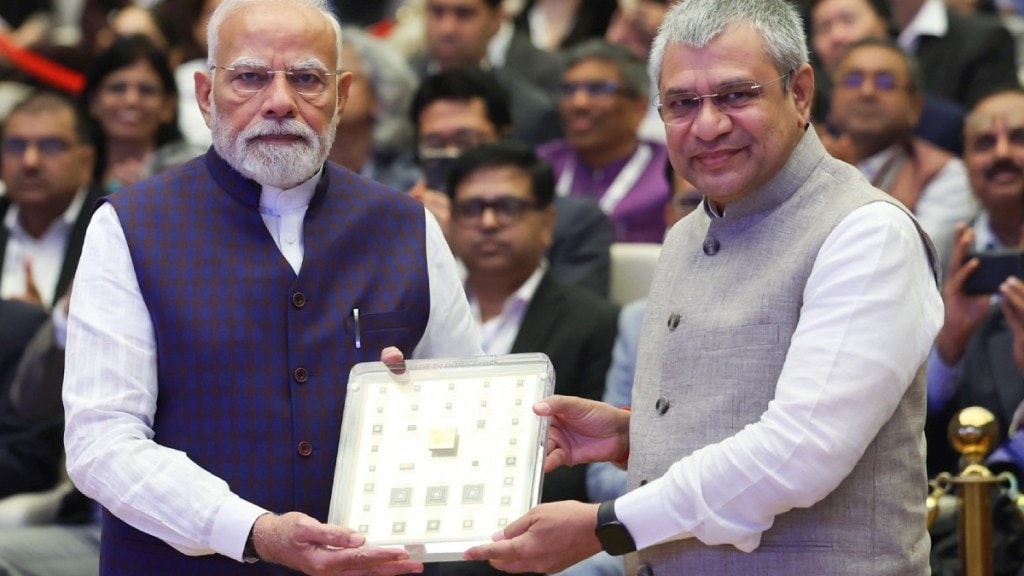In a major step towards self-reliance in the field of space, the Indian Space Research Organisation (ISRO) has unveiled its next-generation microprocessor that is set to revolutionise Indian space missions. Called the Vikram 3201, this microprocessor is based on the 32-bit architecture and is set to give a major boost to spacecraft technology from ISRO in the coming days.
Showcased at the Semicon India 2025 event in New Delhi, the Vikram 3201 was presented to the world and Prime Minister Narendra Modi by Union IT Minister Ashwini Vaishnaw. The chip is crucial to India’s upcoming space missions that require more advanced and complex hardware to undertake bigger missions, possibly being reserved for missions like Gaganyaan and future Chandrayaan voyages.
Vikram 3201: What is it
The Vikram 3201 chip is an upgraded version of ISRO’s earlier 16-bit Vikram 1601 chip. This has been designed primarily for space missions, with the sole objective of withstanding extreme conditions of deep space. This means that Vikram 3201 can withstand extreme temperatures of -55°C to 125°C, thus making it suitable for launch vehicles and satellites. Note that reliability in these extreme environments is of paramount importance as compared to processing speed and other ‘earthly’ parameters.
The Vikram 3201 boasts a custom instruction set architecture that is tailored for the Ada programming language, which is widely used in safety-critical systems. It is also capable of handling complex tasks like floating-point computation. All associated software tools, including a compiler and simulator, have been developed in-house by ISRO.
ISRO chip paves way for Indian semiconductor industry
Beyond its use in space, the chip’s robust design and indigenous development pave the way for India’s semiconductor industry.
The indigenous development of the Vikram 3201 chip aligns with the government’s ‘Aatmanirbhar Bharat‘ (self-reliant India) initiative, demonstrating India’s capability to design and manufacture high-grade microprocessors domestically. The technology could eventually be used in defense, automotive, and other critical sectors, thus positioning India as a key player in the global semiconductor industry.
The local production of the chips could encourage more global players like Samsung and other tech giants to set up chip production facilities in India. As part of the India Semiconductor Mission under the Indian government, $7 billion has already been invested in building chip fabrication plants across the country. The private sector players like Tata Electronics and HCL have been eyeing setting up specialised chip manufacturing units in the country as well.








